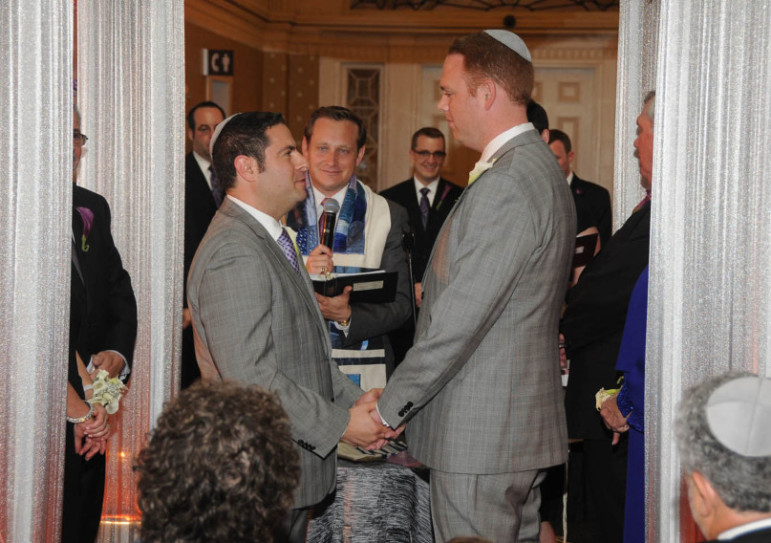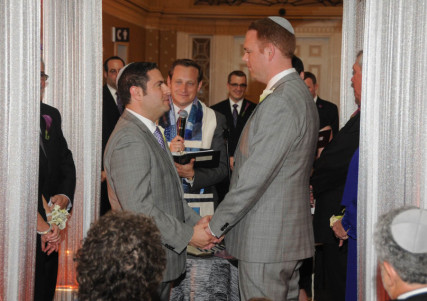Despite threats from conservative Christian dissenters, civil disobedience will turn out to be irrelevant as a response to gay marriage.
To understand why, we have to think seriously about what civil disobedience really is.
I said this in my last column: “If a government mandates what God forbids, or forbids what God mandates, civil disobedience may be required…In the first case civil disobedience involves the refusal to do what government commands, and in the second case it involves the continued practice of an act that government has banned.”
Could this apply to the new legalization of gay marriage nationwide?
The federal government has not mandated that churches or ministers perform gay marriages. Nor has it forbade churches and ministers from performing such nuptials. Government has permitted gay marriages –and thus the solemnization of these marriages by whoever is authorized to offer it.
Therefore, those who wish to perform gay weddings are free to do so, and those who do not wish to perform them are free to not do so. There are no legitimate grounds for civil disobedience here. If the government were one day to mandate that churches or ministers perform gay marriages, this would be grounds for civil disobedience — and a violation of religious liberty. But that is hardly a realistic possibility.
But what about government officials who are now mandated to register or perform civil gay marriages, in violation of their consciences?
In my view, whether or not state officials like a particular law, they are required to submit to it in the performance of their duties — or should resign from office. Government clerks are not church officials. Nor are they simply individual citizens who might find a government’s law to be a violation of conscience. They are on the state payroll. When resignation is an option, refusal to adhere to or enforce the law on the part of a government official is dereliction of duty, not civil disobedience.
After Roe v. Wade, some strongly anti-abortion Christians argued that civil disobedience is permissible or even obligatory where government merely permits what God forbids, such as abortion. Thus some Christians chained themselves to abortion clinic doors and otherwise participated in civil disobedience not because they were mandated to perform abortions, but because others were permitted to do so.
This view was not shared by a large number of Americans and was never accepted by government officials. Eventually the movement ran out of steam, partly because it was so strident.
One could imagine a scenario where government permission of some blatant wrongdoing was sufficient grounds for civil disobedience. It happened all the time during the civil-rights era, when government was allowing blatant racist discrimination.
Few would consider government permission of gay marriage to reach that level of moral seriousness. Public sympathy is far more likely to run to the LGBT community than to those who believe their permission to marry is grounds for civil disobedience.
Take a much more legitimate fear on the part of today’s dissenters — that government will mandate changes in the policies of Christian church, parachurch, social-service, or educational organizations. The most obvious places where this could happen would be related to admissions, hiring, or other policies that discriminate for religious-ethical reasons against married, sexually active, or “out” LGBT persons.
In this case the government would in effect be mandating that Christian institutions accept behaviors, or persons performing behaviors, or persons claiming an identity, that some of these institutions believe that God forbids.
It seems very unlikely that government would simply mandate that Christian organizations change such policies. It might, however, withdraw tax-exempt status, not from churches, but from church-related organizations. Or it might ban federal funds, such as government social-service contracts, research grants, or student loans, from going to such organizations. This is not the same thing as simply banning such organizations from adhering to their preferred policies, but for many organizations it remains a nightmare scenario.
There would be no form of civil disobedience available in such cases. In actuality, their real fight would be within the legal and political system, and it is in fact already happening. If these organizations stick to their policies, and if government moves in the direction I have just indicated (which is by no means a certainty), no organizational leader will be arrested or imprisoned. No organization will be raided and padlocked. No civil disobedience strategy will be relevant. Instead, such organizations essentially will be quarantined off from government dollars, with predictably scary bottom-line and reputational effects.
If these policies are sufficiently important to these organizations, they may well need to prepare for the day when they will have to function without continued access to tax-exempt status or government dollars.
Of course, they do have other options. They could change the relevant policies, perhaps under protest, while claiming no change in their values. They could do this because they decide that their organizational mission is too important to let it die on the hill of LGBT policies.
Or, of course, they could take this as an opportunity to dig deeper and actually reconsider their beliefs about LGBT people and their relationships, as some of us have already done.
In short: the nationalization of legal gay marriage does not seem to present civil disobedience possibilities, despite angry rhetoric calling for that today. For dissenters, it’s going to be a different kind of struggle. It will be conducted in public opinion, in government advocacy, in the courts — and maybe in their own hearts and minds.
I welcome you to follow me on Twitter and friend me on Facebook. Civilized comments are always appreciated, here and elsewhere.






